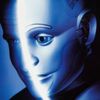Notes.
Hi everyone - I’m Drew Austin, visiting The Prepared from my own newsletter, Kneeling Bus. I’m a freelance writer based in New York who explores urbanism, technology, and the interaction between the two (here's me on Twitter and here's my blog).
For a few years now, The Prepared has been my weekly reminder that so many technological problems are material and physical. At some point in the last decade, we all finally acknowledged that the internet wasn't just an idealized sandbox operating separately from the real world. Software had become so embedded in the fabric of everyday life that we started discussing the two domains as different parts of a continuous whole. Today, we seem to have reached the end of the utopian optimism that made us believe a platform like Facebook could transcend the harsh realities of meatspace. The constraints of the physical world, it turns out, usually show up online as well.
In 2004 Bruce Sterling wrote, "Bits, digital ones and zeros, are not numbers or Platonic abstractions. They are physically real and subject to entropy, just like leaky plumbing. Bits are electrons moving through circuits, or photons in a fibre-optic pipe. Bits are laser burn marks in plastic, or iron filings stuck together with tape. Those are the weird stopgaps that we are using for heritage.” By understanding digital technology as an extension of the material world, rather than a shortcut around it, we might get better at living with it.
The most clicked link in last week's issue (~21% of opens) was the investigation into Trader Joe's white labeled products.
Hardware & Software.
- An incredible essay by Jay Owens on the physical perfection of the iPhone, our intimate tactile relationship with the device (we touch our phones 2,617 times a day), and how that perfection ultimately breaks down, leading us to places like the world's largest e-waste dump in Ghana. The iPhone is "not made to survive contact with the vulgar physicality of the user or face the inevitability of decay over time. It is not made to function in reality, only in the digital perfection of promo videos and marketing copy."
- "You Are Already Living Inside a Computer" by Ian Bogost. Software is eating the world for the simple reason that we like computers and want them to be involved in everything.
Cities.
- Nashville's downtown revival and what it tells us about contemporary American urbanism: The city's centralized enclaves of vibrant, walkable, mixed-use development cater primarily to the young and affluent, concealing the fact that much of Nashville remains as sprawling and segregated as ever. "Growth and density are powerful tools, but only when harnessed to a humane vision of mixture and complexity."
- Bruce Sterling pronouncing the death of the smart city. One of the best things I read all year.
Transportation & Infrastructure.
- Two researchers at NYU have developed a proposal for redesigning Brooklyn's bus network, synthesizing best practices from other cities' transit agencies. Bus ridership is declining nationwide but can solve problems that rail transit can't, and Brooklyn still accommodates 190 million annual bus passengers. Key recommendations: prioritize buses in traffic using dedicated lanes; maintain daytime headways of 6 minutes or better; and space the bus stops farther apart. Related: Alon Levy's blog post on how the MTA can better incorporate outside advice.
- A great history of the rise of the bicycle in China. There are more than half a billion bikes in China today.
- India plans to build nearly 2,000 miles of concrete walls alongside its railways to prevent people from being hit by trains (in the past three years, trains have caused 49,800 deaths in India).
- Evergreen infrastructure content from the Onion.
Housing.
- The value of the average Japanese house depreciates to zero in 22 years, as most are knocked down and rebuilt on a shorter time horizon. This leads to interesting second-order effects, but makes less sense now that the country's population is shrinking (Japan currently has 10 million abandoned homes).
- Tulsa's plan to attract remote workers by offering a $10,000 stipend and discounted rent.
Late Capitalism.
- How Volkswagen briefly became the world's largest company in 2008. A riveting story about the bizarre dynamics of financial markets in the 21st century. "The Volkswagen short-squeeze shows fear can propel securities upwards as well."
- The artificial currencies from video games like Clash of Clans have become popular for money laundering.
- The only thing better than blockchain is blockchain in space.
Tangents.
- Termites have "sculpted some 90,000 square miles of Brazil into a junkyard that's visible from space."
- A master's thesis on science fiction spaceship design that's actually worth downloading and skimming through. The author examines many spaceships from movies and video games, finding that certain typologies indicate humans while others indicate aliens (symmetry and quadrilateral panels are human, for example, while "organic" shapes and saucers are alien).
- Fluid dynamics experts think wombats' poop might hold the key to a better method for manufacturing cube-shaped objects.
Read the full story
The rest of this post is for SOW Subscribers (free or paid) only. Sign up now to read the full story and get access to all subscriber-only posts.
Sign up now
